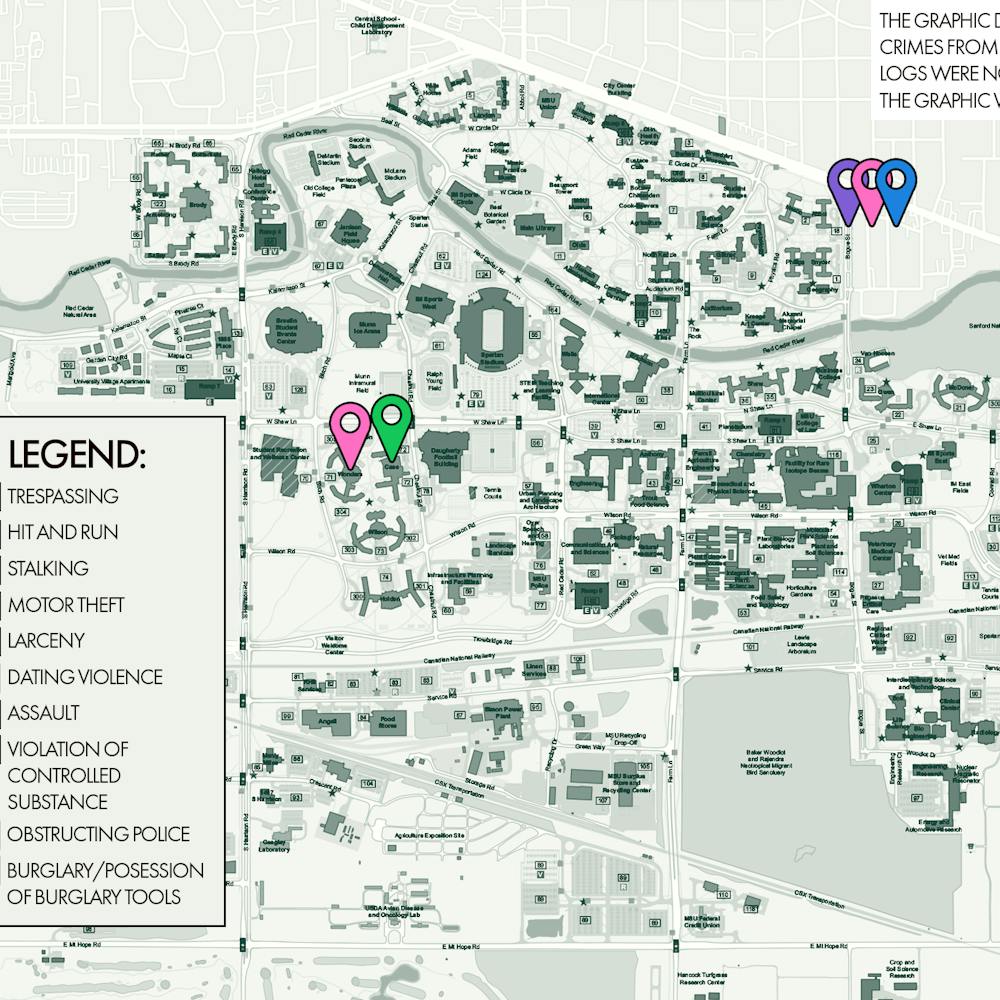University Committee on Student Affairs and ASMSU should be commended for its involvement in creating a new riot policy, which should be adopted by the university as soon as possible.
The existing policy, established after the March 27-28, 1999, riot, allows university officials to punish students who partake in any uprising, whether it be on campus or off. It allows officials to temporarily suspend students accused of rioting until their trial date with the All-University Student Judiciary.
The revision would prevent any disciplinary action until a verdict is reached by the student judiciary. It is only fair that a student not be punished until he or she is proven guilty.
ASMSU is MSU’s undergraduate student government.
But officials can still suspend students who present a clear and present danger to people or property. MSU is right in taking caution, very carefully, because it is common sense that if a student is seriously threatening the university community, he or she should immediately be suspended.
According to the MSU Student Disorderly Conduct Policy, the definition of riot is “five or more persons, acting in concert, who engage in violent conduct and thereby intentionally or recklessly cause or create a serious risk of causing public terror or alarm.”
The amendment also will allow university officials to punish students for rioting on any campus in the world. MSU is setting a good example to universities across the nation that every student is responsible for his or her own actions and that students represent MSU wherever they go. This policy, though, will be difficult for university officials to enforce because it is hard to monitor the actions of MSU students at other universities.
This is a reminder that many students convicted of inciting the riot weren’t even MSU students. Their actions should cost their respective schools and be an example to them.
Other alterations include the changing of the policy’s name to the “Michigan State University Student Disorderly Conduct Policy” and eliminating “failing to disperse when directed by police officers” as a definition of disorderly conduct.
A revision of the proposal was approved by the Academic Council on Tuesday and will now be sent to the MSU Board of Trustees for final consideration. UCSA showed good initiative with constructing this proposal and getting it approved. If a policy had not been approved by April 30, the original policy, which was passed in response to the March 1999 riot, would have been the final policy.
ASMSU has stepped up its efforts lately, including the online teacher-grading system it pushed, the Student Public Evaluation System (SPES), which enables students access to student opinions of specific classes and faculty members via the Internet.
The MSU Board of Trustees should listen to ASMSU and continue to support its ideas. UCSA’s proposal is well thought out and representative of MSU. The proposed amendments would benefit MSU and its students.






